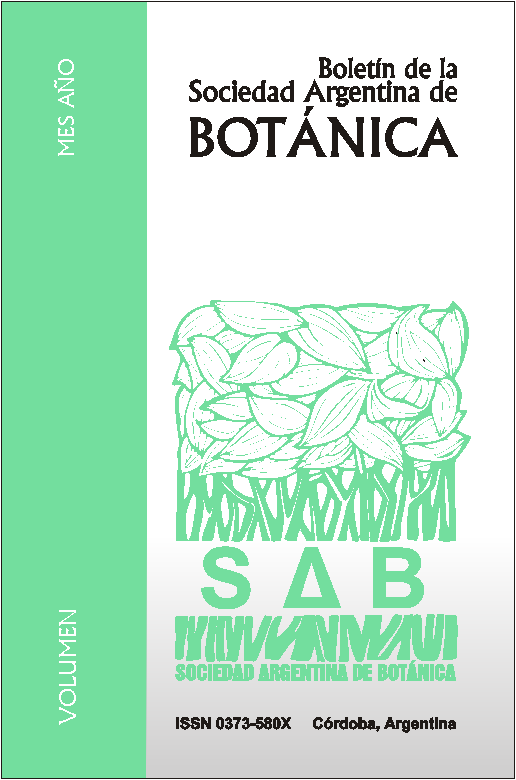Differential diversity of Glomeromycota in relation to host species in the rhizosphere of native bromeliads from Sierra de las Quijadas National Park (San Luis, Argentina).
DOI:
https://doi.org/10.31055/1851.2372.v49.n3.9462Keywords:
native arbuscular mycorrhizal fungi, richness, density, Bromeliaceae, host species.Abstract
Differential diversity of Glomeromycota in relation to host species in the rhizosphere of native bromeliads from Sierra de las Quijadas National Park (San Luis, Argentina). Arbuscular mycorrhizal fungi (AMF) are associated with most of the plants, forming arbuscular mycorrhizas. Bromeliaceae is an American family living from the tropics to temperate and arid zones. Sierra de las Quijadas has species of terrestrial Bromeliaceae colonized by AMF with different degree of association. The aim of this work was to study the AMF spore diversity (richness and density) in the rhizospheric soil of three native species of Bromeliaceae from Sierra de las Quijadas. Richness and density of spores differed significantly between the Bromeliaceae species studied, with the lowest values in Bromelia urbaniana. Meanwhile, Deuterocohnia longipetala and Dyckia floribunda showed the highest values and only differed between them in richness of spores. This AMF differential diversity between the three bromeliads species may be related to the host species and also due to different levels of root colonization that were previously reported. Moreover, the low richness and density of AMF in the rhizosphere of B. urbaniana may be either due to anallelopathic effect of this plant or due to its particular root morphology.
Downloads
Issue
Section
License
Provides immediate and free OPEN ACCESS to its content under the principle of making research freely available to the public, which fosters a greater exchange of global knowledge, allowing authors to maintain their copyright without restrictions.
Material published in Bol. Soc. Argent. Bot. is distributed under a Creative Commons Attribution-NonCommercial-ShareAlike 4.0 International license.





